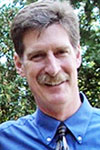No biological legacy

From Washington State Magazine:
“No biological legacy.”
The phrase John Bishop uses to describe the effect of Mount St. Helens’s eruption on the main blast zone, the pumice plain, holds an understated charm. By now, everyone has heard the story of Mount St. Helens-how it blew on a Sunday morning in May 1980, after rumbling for weeks, an earthquake triggering an enormous landslide, hot gas and rock debris blasting across the landscape at 1,100 kilometers an hour, devastating 60 square kilometers and killing 60 people. But it is impossible to accept the immensity of the mountain and the eruption’s legacy, unless you are able to stand beneath the enormous crater on the pumice plain-and hear Bishop, an ecologist at Washington State University at Vancouver, talk about lupines.
No biological legacy. Trees, birds, elk, bacteria, spring flowers, humans-all simply vaporized. A whole region was completely sterilized.

